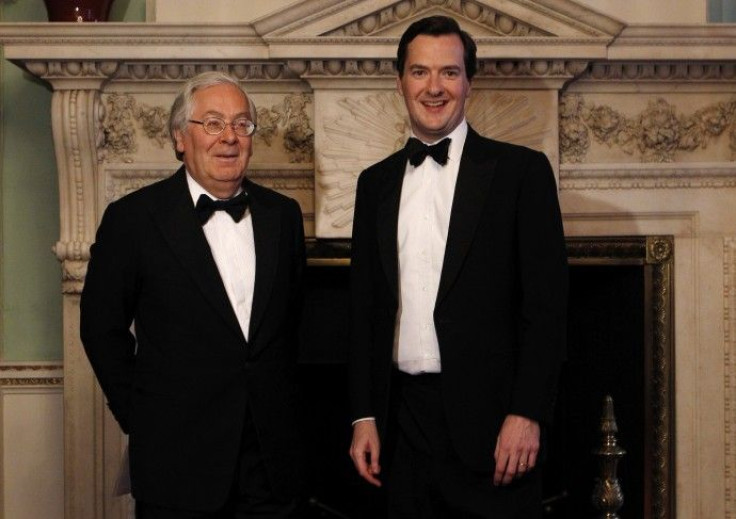UK Chancellor Osborne defends beleaguered BoE chief

U.K. Chancellor of the Exchequer George Osborne is defending the beleaguered Bank of England (BoE) governor Mervyn King, who has come under fire in recent weeks for allegedly having a lack of political neutrality.
“I don’t believe he has been drawn into matters political,” Osborne told the House of Commons Treasury Committee. “The idea that he is somehow partisan is wrong. I’ve never asked him to say something or asked him not to. We want Bank of England governors who are independent and independent-minded.”
BoE member Adam Posen has criticized King for supporting the coalition government’s goal of cutting public spending at a faster rate than the prior Labour government had planned. Moreover, former central bank member David Blanchflower called on the King to resign.
Osborne emphasized to Members of Parliament on the Treasury Select Committee that King was appointed by former Labour Prime Minister Gordon Brown and subsequently reappointed by Alistair Darling, Osborne’s former Labour counterpart (who has also recently warned King about getting too closely entangled with political affairs).
“It's not as if he's a Conservative or Liberal Democrat appointment to the Bank, so the idea that he's somehow partisan is wrong,” Osborne said.
King was also “outed” as questioning the experience of both Prime Minister David Cameron and Osborne in a recent WikiLeaks cable revelation.
However, Osborne tried to defuse the controversy by telling the Treasury Committee that King “wasn’t telling me anything in private that he wasn’t saying in public.”
Osborne also informed the Committee that his plan to cut the UK deficit was designed to give the BoE “maximum flexibility” to stimulate growth. He rejected the notion that any kind of policy “coordination” exists between the central bank and the government.
“I’m very clear that monetary policy is the principal tool for stimulating demand,” the chancellor said.
The BoE became independent as an autonomous rate-setting body in 1997.
© Copyright IBTimes 2024. All rights reserved.











